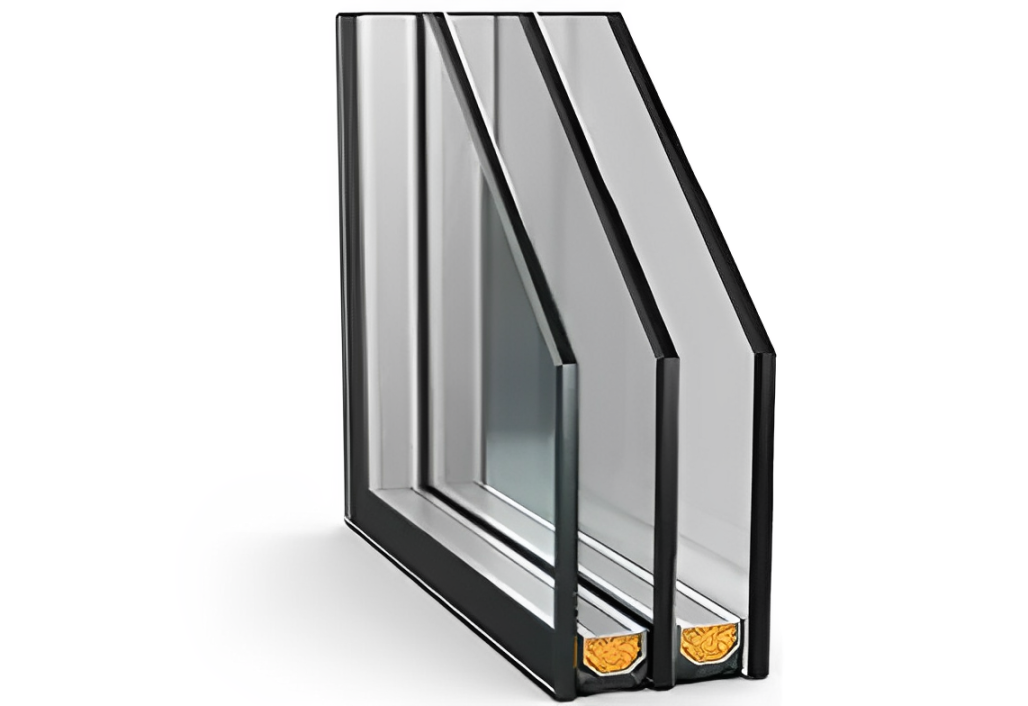"Anmol Bunglow", 1st Floor, Plot No. 2, Mangal Co. Op. HSG Soc.,
Behind Indraprasth Mangal Karyalaya,
Gangapur Road, Nashik - 422005.
Dist : Nashik, Maharashtra (India).

Insulated glass is a prefabricated unit made of two or more
glass panes, which have been separated by an air gap and edge-sealed
together. This is also known as double glazed unit (DGU) or Insulated Glass
unit (IGU). The two panes of glass are kept separated by a hollow
aluminium tube spacer filled with a moisture absorbing material
(desiccant) and is hermetically sealed to ensure that the air or gas in
the cavity or hollow space between the two glass panes does not
escape during hot climate, or outside air is not sucked in during winter
or cold climate as a result of expansion & contraction of trapped dry
air or gas due to change in temperature. This edge seal not only binds
the individual sheets of glass together to maintain the mechanical strength
of the joint but also protects the space between the glasses from
outside influences. The air enclosed between the two glass panes is dried
with a desiccant. Because of the low heat conductivity of the enclosed dry
air between the glass panes, heat transmission through the window is
drastically reduced. The sealants delay the moisture getting into the air
space and the desiccant absorbs the moisture coming through the seal and during
the manufacturing process. Insulated glass can also be made with three
panes of glass & two air gapes. This type is known as triple glazed
units & are used only in regions having extremely cold climate.
Characteristics of Insulating Glass :
Insulation : Saves on heating and cooling, by
reducing air to air heat transfer. The enclosed layer of air makes the
insulating capability about twice that of monolithic glass. Because of this,
the load on the air conditioning is greatly reduced. The use of heat
absorbing or heat reflective glass will further reduce the load on the
cooling system.
Prevention of Dew Condensation : With monolithic
glass, the temperature difference between the outside and inside of a room
will often lead to condensation. However, the insulating effect of the air
layer makes it difficult for the glass to become cold enough to have condensation
on its surface giving a pleasant view through in rainy or high humidity
climates.
Retards Sound Transmission : Insulating glass
can significantly save on exterior noise pollution. The amount of sound
reduction depends on the combination of the insulating glass. Using one of the
panes as laminated glass will drastically reduce sound transmission. Using
dissimilar thickness of glass panes will also help combat noise.
Pleasant Room Temperature : It offers increased
personal comfort and aids in energy conservation. Because of its high
insulation properties, the lack of cold or warm droughts leads to a pleasant
internal environment even when seated close to a glass surface.
Strength : DGU glass will marginally increase
the overall strength against wind load pressure.